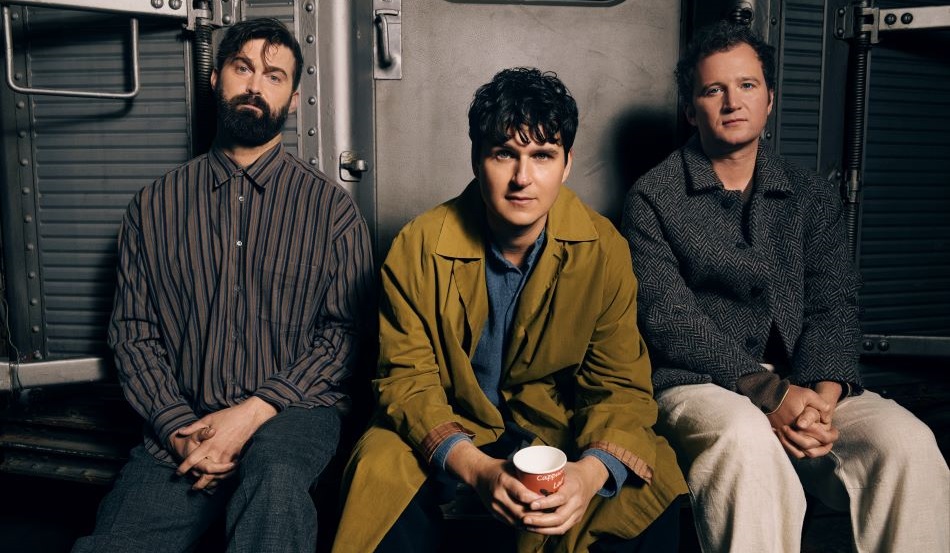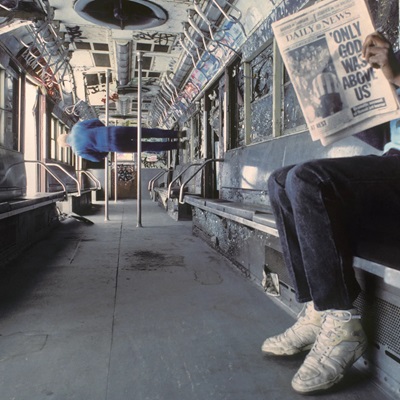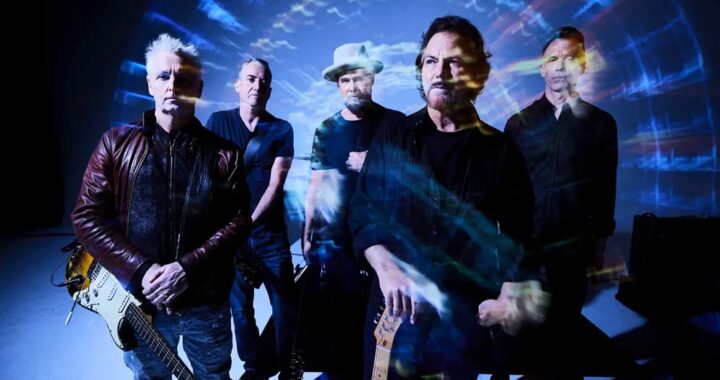Album Review: Vampire Weekend – Only God Was Above Us
2 min read
Vampire Weekend are more than just A-Punk – they have multiple albums charting at number one on the US Billboard 200 (the U.S.A. album and EP chart), multiple awards (including 2 Grammys for ‘Best Alternative Music Album’) and have been on multiple tours. Only God Was Above Us gives us their fifth studio album, through Columbia Records, and lifts the title directly from a 1988 headline from New York paper ‘Daily News,’ which refers to an Aloha Airlines flight where an explosion tore the roof from the plane. With the familiar setup of Ariel Rechtshaid producing for the band, the album looked to 1990s New York City for inspiration – frontman Ezra Koenig describing the album as “A journey from cynicism to optimism.”
 Starting off somewhat muted, Ice Cream Piano kicks into action after around a minute in, led by distorted guitars and driven by a galloping beat, with piano and strings adding to the offering later on, with Classical following – a very ‘Frontier Psychiatrist’ (by The Avalanches) electric guitar, which is a bit restricted/restrained musically in the verses, though I do find myself coming back to this track – it’s catchy. One of the double release singles, Capricorn, gives us a slower tempo to the album, with the whammy bar in full use (giving an Eels vibe to the track), as does Prep-School Gangsters, which feels like a mesh elements of tracks two and three – and both these sandwich Connect – piano heavy and a great marriage with the bass, in a busy track, that, for me, really works. Taking a stylistically different direction, The Surfer works to a slow, yet unmistakably, hip-hop beat, breaking later in the track with an orchestral cacophony, akin to that found mid-track in The Beatles A Day In The Life.
Starting off somewhat muted, Ice Cream Piano kicks into action after around a minute in, led by distorted guitars and driven by a galloping beat, with piano and strings adding to the offering later on, with Classical following – a very ‘Frontier Psychiatrist’ (by The Avalanches) electric guitar, which is a bit restricted/restrained musically in the verses, though I do find myself coming back to this track – it’s catchy. One of the double release singles, Capricorn, gives us a slower tempo to the album, with the whammy bar in full use (giving an Eels vibe to the track), as does Prep-School Gangsters, which feels like a mesh elements of tracks two and three – and both these sandwich Connect – piano heavy and a great marriage with the bass, in a busy track, that, for me, really works. Taking a stylistically different direction, The Surfer works to a slow, yet unmistakably, hip-hop beat, breaking later in the track with an orchestral cacophony, akin to that found mid-track in The Beatles A Day In The Life.
The second of the double release singles, Gen-X Cops smacks you in the face nice and early with great distorted electric guitar and a real Surfaris style up-tempo beat, replete with great use piano and a real punch to the lyrics – “Each generation makes its own apology” – a fantastic commentary on society! All the feels in Mary Boone where spoken vocals (celebrating the art dealer) take centre stage, with an occasional, yet obvious, hip hop beat (I could cite anything from Tribe Called Quest to Milli Vanilli) kicking in. Ending the album on a slower tip, we have two tracks Pravda (which really picks up towards it’s conclusion for a hot second) and closer Hope, where they save the best for last. A slouchy, Radiohead feel to the bass, the addition of piano riffs, a glorious instrumental breakdown and heavenly chord changes during the instrumental break – “I hope you let it go” pleads Koenig, but with a slew of melodic and fresh tracks, with one or two stand out hits (including the finale track), the one thing I doubt listeners of Only God Was Above Us will be doing is ‘letting it go’ from their playlists any time soon!



